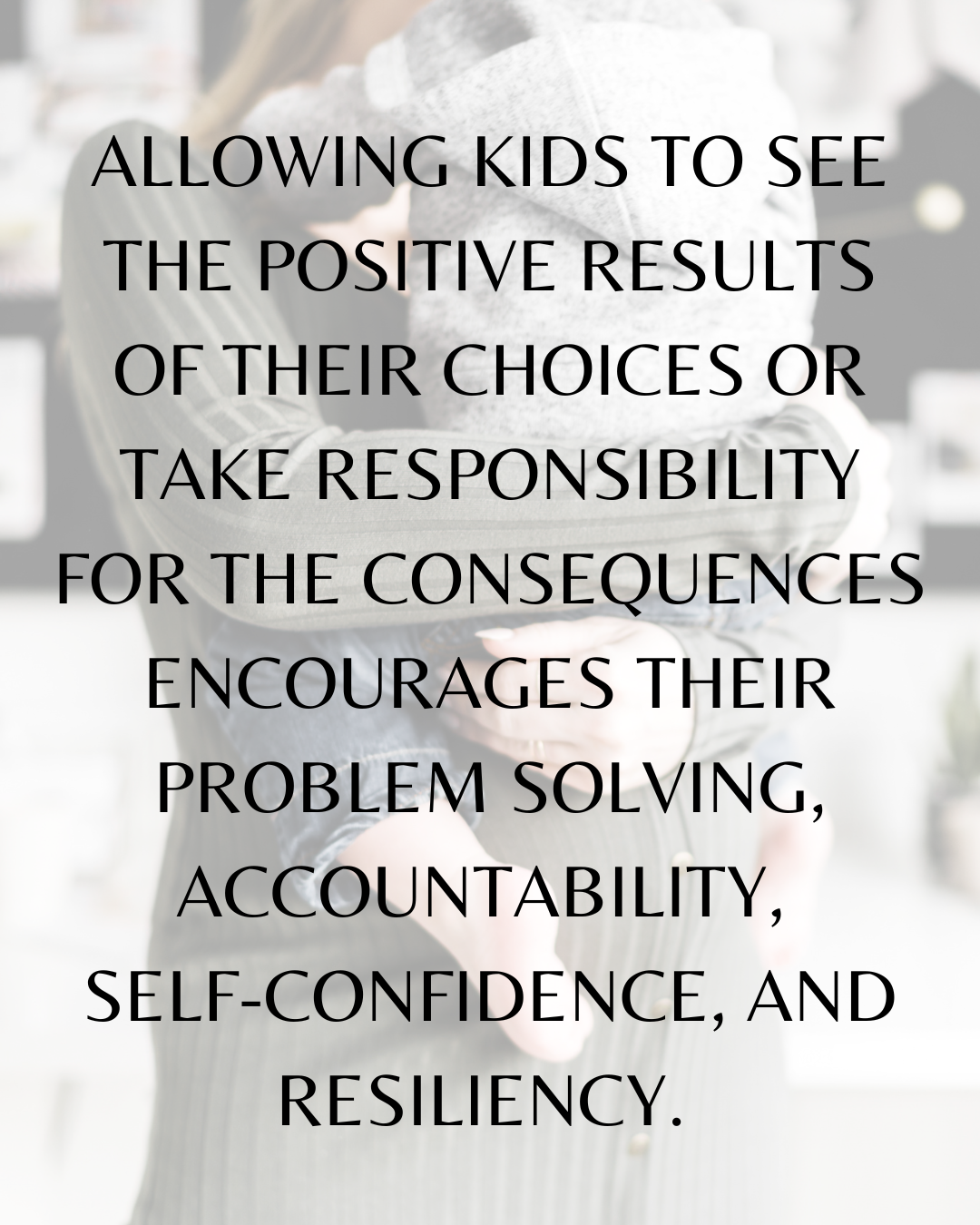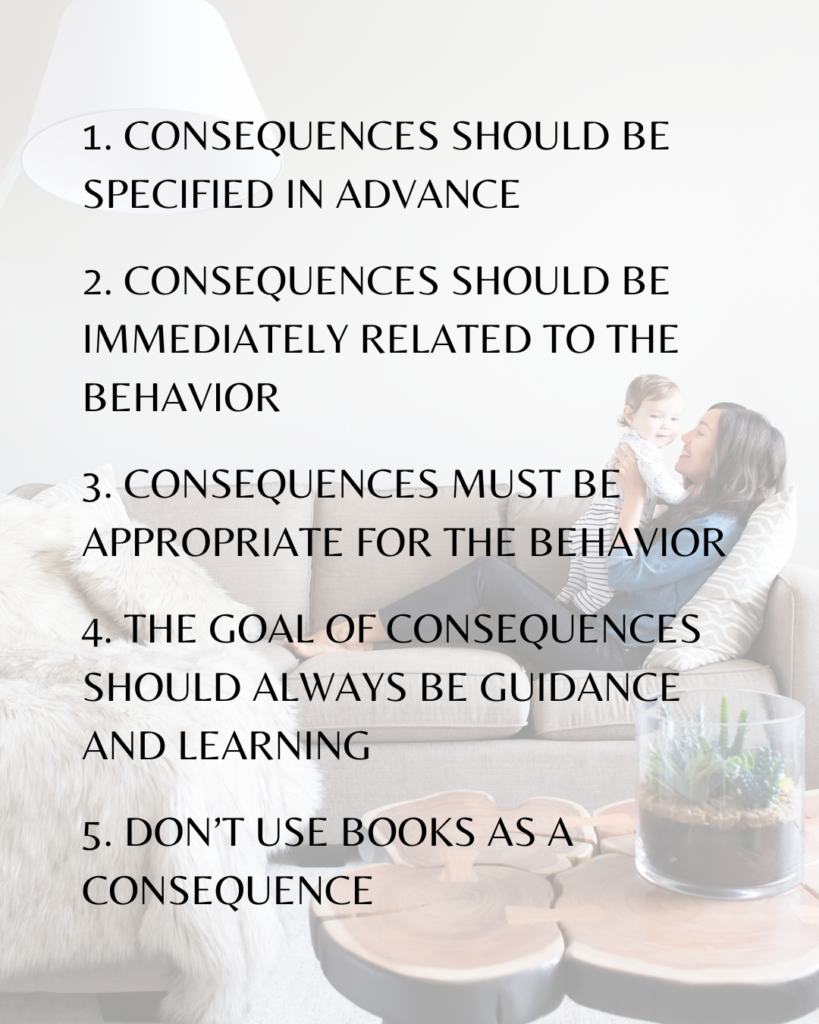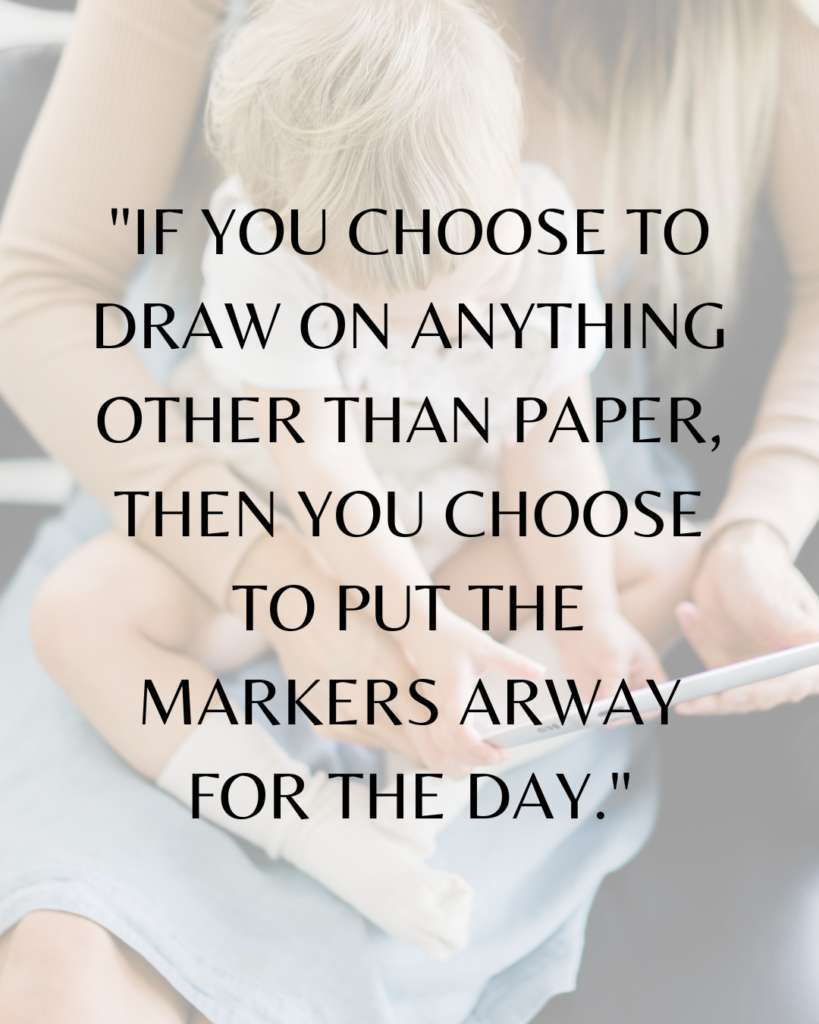The Value of Choice: Discipline with Positive Parenting
Does the concept of ‘discipline with positive parenting’ feel like on oxymoron? If discipline feels like a scary, punitive word to you – it’s probably because thats how you were raised (and if so, thanks for being here and congrats on doing the work to be a cycle breaker!). Within the context of positive parenting, discipline has a whole new meaning – and choice within discipline is a game changer.

Letting your child know they have choices means parent and child can be on the same team when it comes to discipline, which can create an environment with fewer power struggles and more open communication. This is a great way to set boundaries and teach consequences while also helping children understand that they are responsible for their actions and behaviors. Allowing kids to see the positive results of their choices or take responsibility for the consequences encourages their problem solving, accountability, self-confidence, and resiliency.
So how do you implement this?
One of my favorite positive parenting phrases that I use constantly is:
“IF YOU CHOOSE ________, THEN YOU CHOOSE ________.”
This shift in language helps both you and your child understand the boundaries and consequences of both wanted and unwanted behavior.
To be effective and respectful, there are some important rules for using this phrase:

1. Consequences Should be Specified in Advance
For example, “You chose to throw your toys, so I’m taking away your toys.” is not effective because the child did not have a chance to make a choice about their behavior. This is simply a reactive punishment for behavior that has already taken place.
Instead, if you see your child throw their toys, try: “If you choose to throw your toys, you’re choosing to put them away for the day.” Give them one more chance to make that choice.
2. Consequences Should be Immediately Related to the Behavior
For example, “If you choose to pull your sister’s hair, then you’re choosing not to watch TV tonight.” is not effective. The two behaviors are not related and therefore would make it difficult for a child to see as a consequence of their behavior, rather than a punishment.
Instead, try: “If you choose to pull your sister’s hair, then you choose not to play with your sister.”
Another example of an unrelated positive outcome would be: “If you choose not to pull your sister’s hair, then you choose to eat ice cream after dinner.” This is really just a bribe and doesn’t internalize anything except the idea that pulling hair could eventually lead to ice cream.
3. Consequences Must be Appropriate for the Behavior
For example, “If you choose not to wear a helmet when you ride your bike, then you choose to have me donate your bike to charity so you can’t ride it anymore” is not effective because the crime doesn’t fit the punishment. A child may see this as an unfair reaction rather than an appropriate response to their choice.
Instead, try: “If you choose not to wear a helmet when you ride your bike, then you choose not to ride your bike today.”
4. The Goal of Consequences Should Always be Guidance and Teaching
Always keep in mind that the goal is to help your child learn to make their own appropriate choices, rather than to punish them for the choices they have already made. Always use age appropriate consequences that are easy for your child to understand. If you find that in the heat of the moment you have broken one of the rules above, you can (and should) always repair.
5. Don’t Use Books as a Consequence
Books are precious!

EXAMPLES:
Please only use age-appropriate consequences!
“If you choose to not put away your toy, then you choose to not play with a different toy.”
“If you choose to not stay near me when we are walking, then you choose for me to carry you.”
“If you choose to not use gentle hands with the baby, then you’re choosing to not play with the baby.”
Examples of positive behavior rewards:
“If you choose to sit nicely in the restaurant, then you choose to eat in more restaurants.”
“If you choose to come home with a full tank of gas, then you choose to use the car again next time you ask.”
“If you choose to turn off your video game in five minutes without me reminding you, then you choose to play your game again tomorrow.”
It’s not easy being a parent, but one of the most rewarding aspects is seeing your kids grow and change into well-rounded individuals. Choice and opportunity are important tools that you can use to help guide your children towards making good decisions. By clearly showing them that their actions have consequences and rewards you can positively shape their character and set them up for success in life. So tell me, does this post help you feel differently about discipline with positive parenting?
Don’t forget to share on social media if you found this post helpful!
How to Continue your Positive Parenting Journey:
- Subscribe to That Quiet Newsletter – You’ll get exclusive content, and first dibs on resources. Plus, you’ll get a free gift when you sign up!
- Explore my Positive Parenting Resources – your one-stop shop for filling your parenting toolbox. More resources added weekly.





